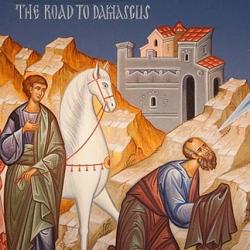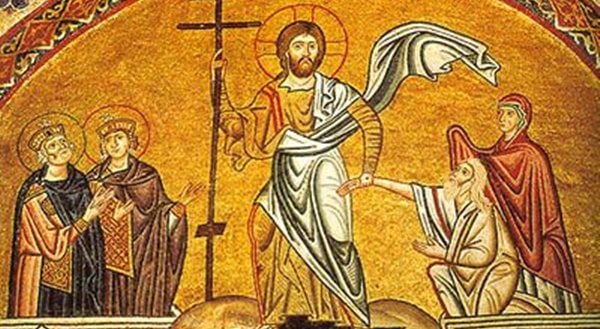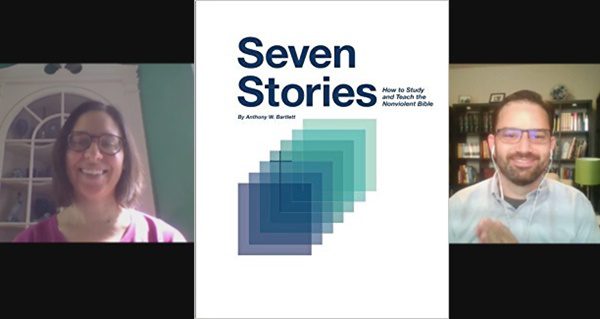For a long time I thought I was too smart for the resurrection. My progressive UCC congregation made a comfortable home for my intellectual faith – I wasn’t letting anyone force me to leave my brain at the sanctuary door. If my head couldn’t come along for the ride, my faith wouldn’t go there. And so my rational, scientific brain did away with miracles of all kinds. They were too easy to explain as metaphors or written off to first century worldviews. Of course the loudest pillar to fall beneath the weight of my brainiac faith was the empty tomb. That it happened to be the central pillar of Christianity didn’t bother me at all. I still called myself a Christian, albeit in a whisper and with the self-satisfaction of knowing my brand of Christianity was the wave of the future.
But then my pastor, the one who had told me I didn’t have to leave my brain at the door, knocked me for a loop. Some unsuspecting newbie to our community asked him if he believed in the resurrection. I felt sorry for the poor questioner because I knew what my pastor was going to say – or so I thought! When he said, “Of course I believe in the resurrection,” my brain nearly exploded! My rational mind couldn’t figure out how a fellow rationalist could “believe” in something so unscientific and irrational. Seriously, the software that had been running my faith crashed and burned. I felt betrayed. Either my pastor meant what he said and I could bring my brain along, which meant the resurrection had to go, or the resurrection stayed and rationality took a vacation.
I was seriously at a loss, but that’s a good place to be, it turns out, if you want to follow Jesus into new life. I’ve learned so much in the intervening years about the power of violence and death that permeates each of us, vibrating undetected at the very core of our identities. All that I’ve learned about violence, scapegoating, and the anthropological earthquake that Jesus inaugurated I’ve learned from the mimetic theory community that my pastor, now of blessed memory, introduced me to. Sharing that knowledge is what motivates our blogging here Teaching Nonviolent Atonement and at the Raven Foundation. If you’d like to experience the kind of conversation around the resurrection that takes place among mimetic theorists, I urge you to join the Theology and Peace Discussion Group on Facebook so you can see how my question about the resurrection was answered with an inspiring combination of reason and faith.
After years of letting my brain work through the anthropological impact of Jesus life, death and resurrection on humanity, my heart began to see things more clearly. By denying the power of God to raise Jesus into new life, I had been engaging in a secret form of idolatry. My logic had been simple: if humans couldn’t do it, then neither could God. Not only was I limiting God’s power by forcing God to behave within human limits, I had become an atheist without realizing it. Because if no power existed that was greater than human power, then no God existed. It was logical. But it was sterile, too. My faith and my life were drying up, cut off as they were from the source of life that God had made available to me, to us all, on that first Easter morning. I encourage you to take your brain for a long stroll through our blog posts, to pick up a good book on the anthropology of the cross*, and allow yourself to dare to peer inside the empty tomb. See how your brainiac faith reacts when reason is seasoned with “terror and amazement”. Do not be afraid this Easter – the stone has been rolled away and he has gone ahead of you. He is waiting even now for us to arrive.
*My short list for books presenting an anthropology of the cross are The Jesus Driven Life, by Michael Hardin; Virtually Christian, by Anthony Bartlett; Compassion or Apocalypse, James Warren; and Saved from Sacrifice: A Theology of the Cross, by S. Mark Heim. A great online resource for interpreting biblical texts is Girardian Reflections on the Lectionary curated by Rev. Paul Nuechterlein.












